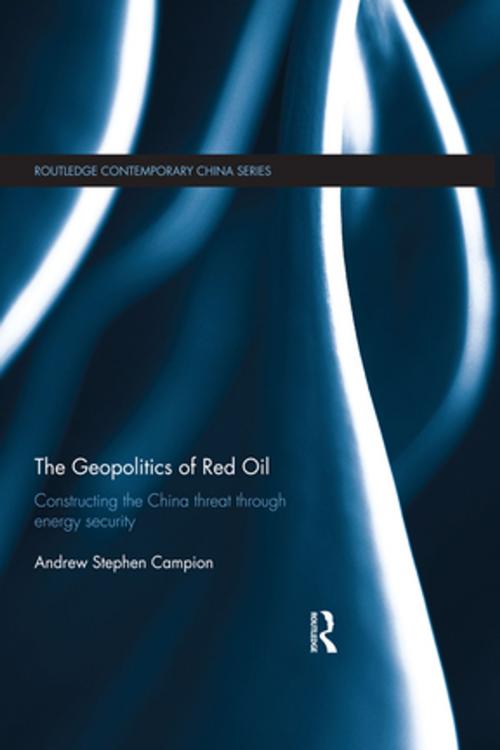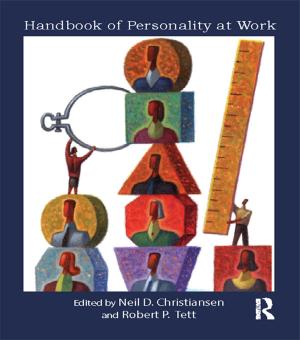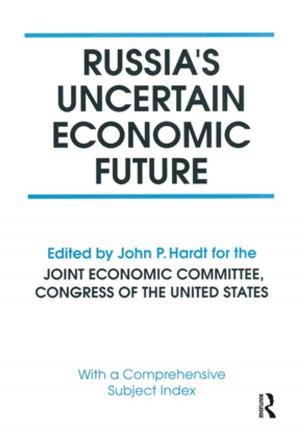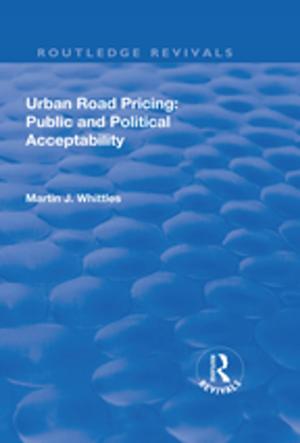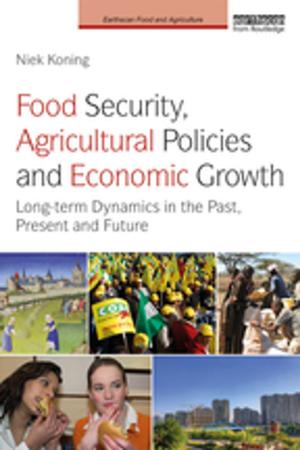The Geopolitics of Red Oil
Constructing the China threat through energy security
Nonfiction, Social & Cultural Studies, Social Science, Cultural Studies, Ethnic Studies| Author: | Andrew Stephen Campion | ISBN: | 9781317354284 |
| Publisher: | Taylor and Francis | Publication: | January 8, 2016 |
| Imprint: | Routledge | Language: | English |
| Author: | Andrew Stephen Campion |
| ISBN: | 9781317354284 |
| Publisher: | Taylor and Francis |
| Publication: | January 8, 2016 |
| Imprint: | Routledge |
| Language: | English |
Energy security has emerged as one of the most important contemporary geopolitical issues. Access to reliable, cheap energy has become essential to the functioning of modern economies but the uneven distribution of energy supplies has led to perceptions of significant Western vulnerability. At the same time, many in the West have become wary of China’s re-emergence as a major power in global politics, with its impact on Western foreign policies and potential threat to Western energy security.
This book offers fresh insights into the rise of China as a global superpower and the ways in which its rise is perceived to threaten Western energy security, engaging specifically with how the idea of the China threat has emerged in popular discourse. The author questions how recent US foreign policy has sought to position China as an antagonist to Western energy interests and explores how this image has become the dominant understanding of China by the West. Rather than treating these issues as given, which orthodox approaches tend to do, this book analyses the discursive relationship between US identity, foreign policy and energy security, which leads to a more nuanced and critical understanding of perceptions of China’s potential threat to Western energy security.
Filling an important gap in the emerging corpus of research on energy security, this book will be particularly valuable to students and scholars of Politics, International Relations and Chinese Studies.
Energy security has emerged as one of the most important contemporary geopolitical issues. Access to reliable, cheap energy has become essential to the functioning of modern economies but the uneven distribution of energy supplies has led to perceptions of significant Western vulnerability. At the same time, many in the West have become wary of China’s re-emergence as a major power in global politics, with its impact on Western foreign policies and potential threat to Western energy security.
This book offers fresh insights into the rise of China as a global superpower and the ways in which its rise is perceived to threaten Western energy security, engaging specifically with how the idea of the China threat has emerged in popular discourse. The author questions how recent US foreign policy has sought to position China as an antagonist to Western energy interests and explores how this image has become the dominant understanding of China by the West. Rather than treating these issues as given, which orthodox approaches tend to do, this book analyses the discursive relationship between US identity, foreign policy and energy security, which leads to a more nuanced and critical understanding of perceptions of China’s potential threat to Western energy security.
Filling an important gap in the emerging corpus of research on energy security, this book will be particularly valuable to students and scholars of Politics, International Relations and Chinese Studies.
